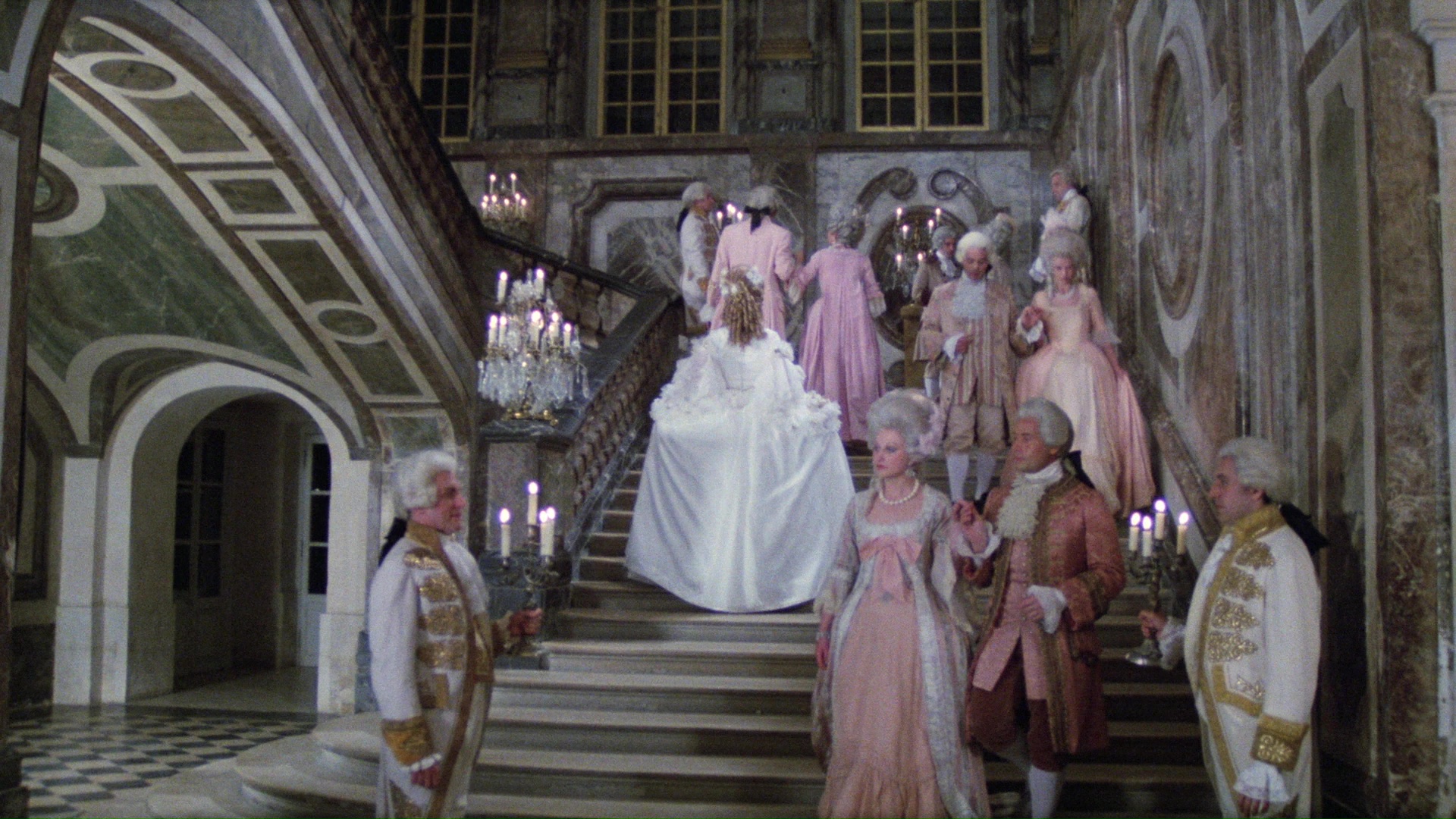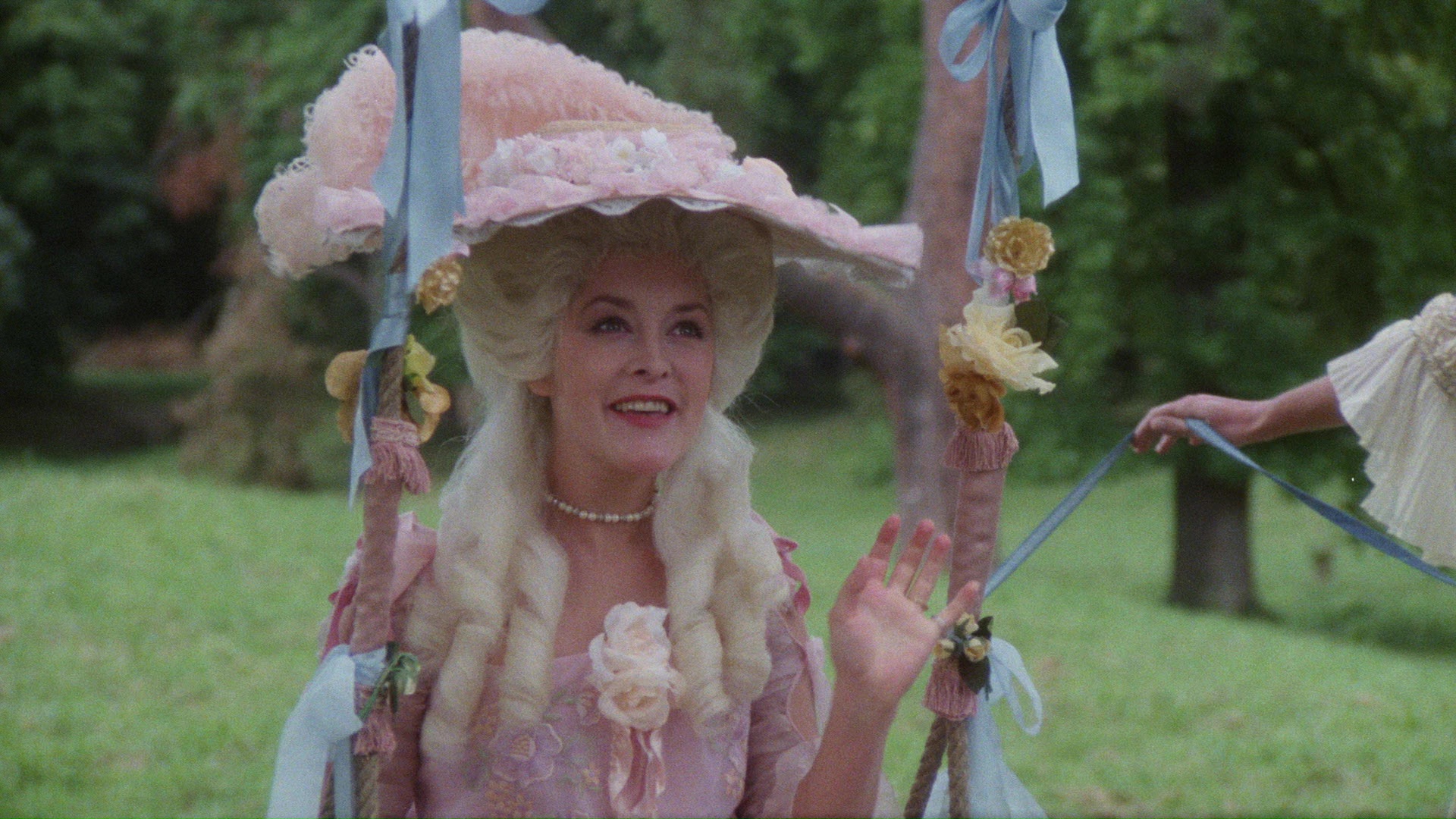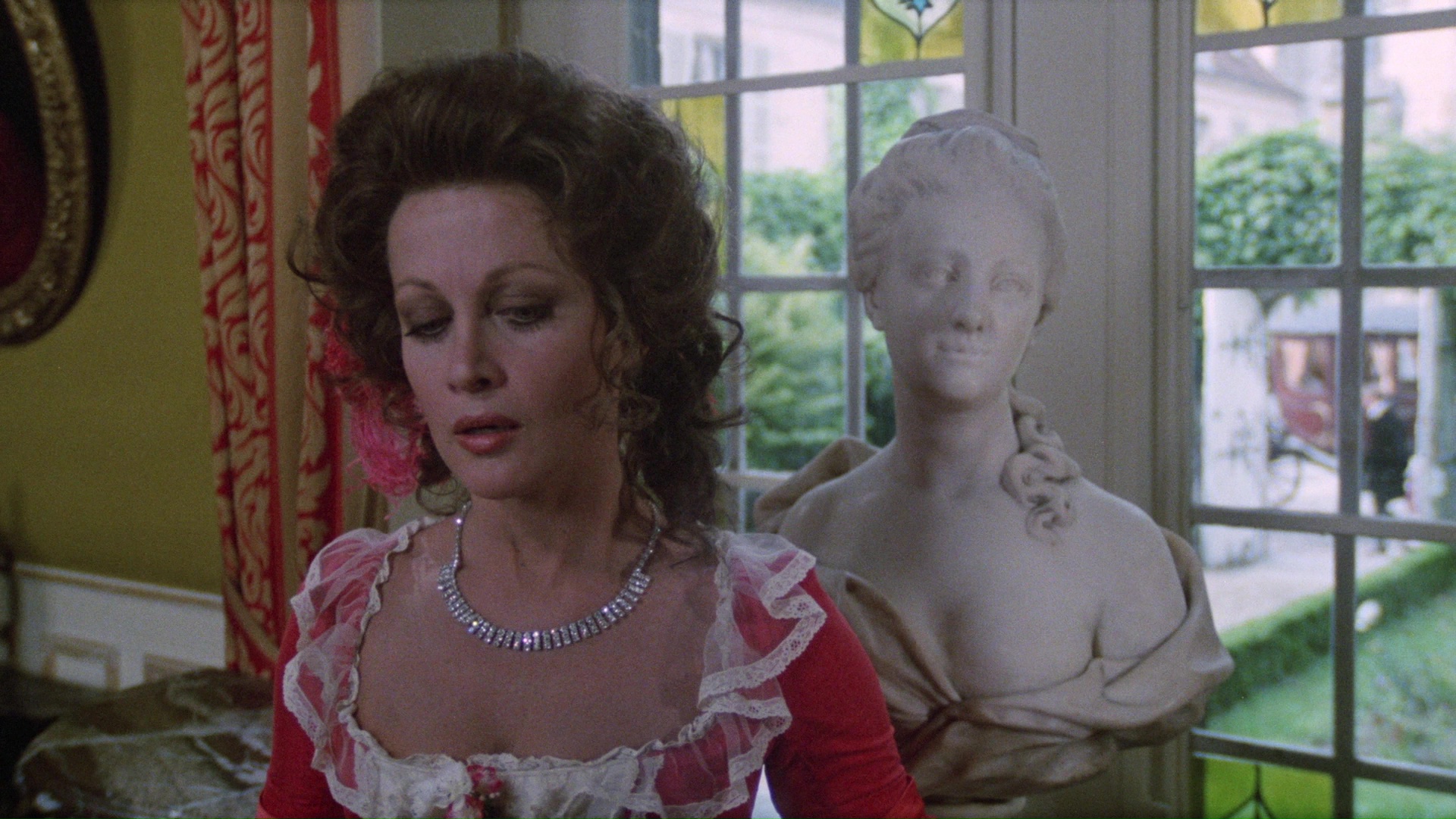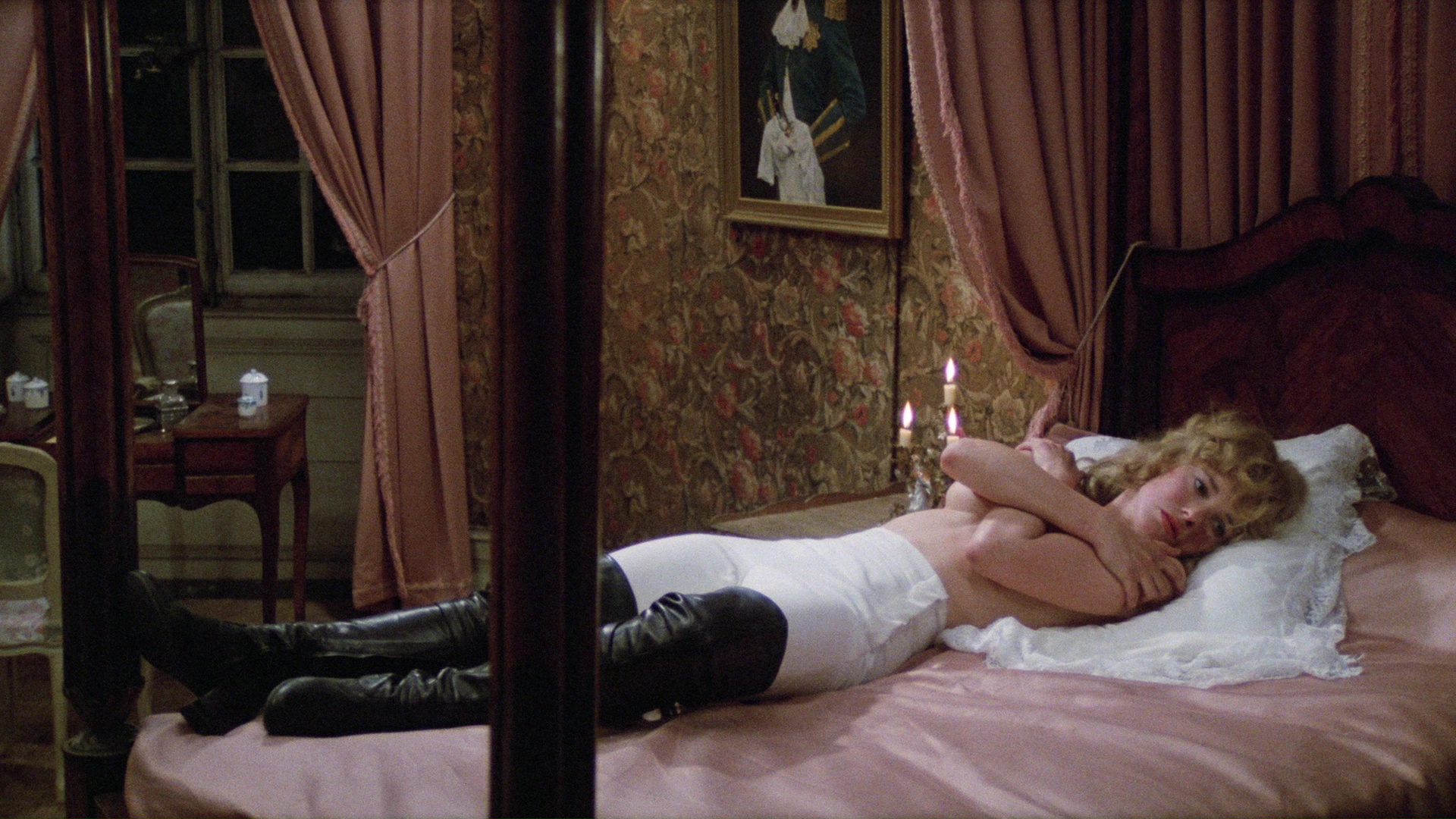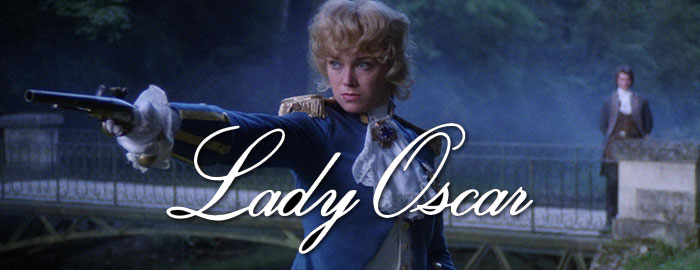
Color, 1979, 123 mins. 28 secs.
Starring Catriona MacColl, Barry Stokes, Christine Böhm, Jonas Bergström, Mark Kingston, Martin Potter, Patsy Kensit
Happinet (Blu-ray) (Japan R0 HD), Arte (France R2 PAL), Royal (Japan R2 NTSC), Filmax (Spain R2 PAL) / WS (1.78:1) (16:9)
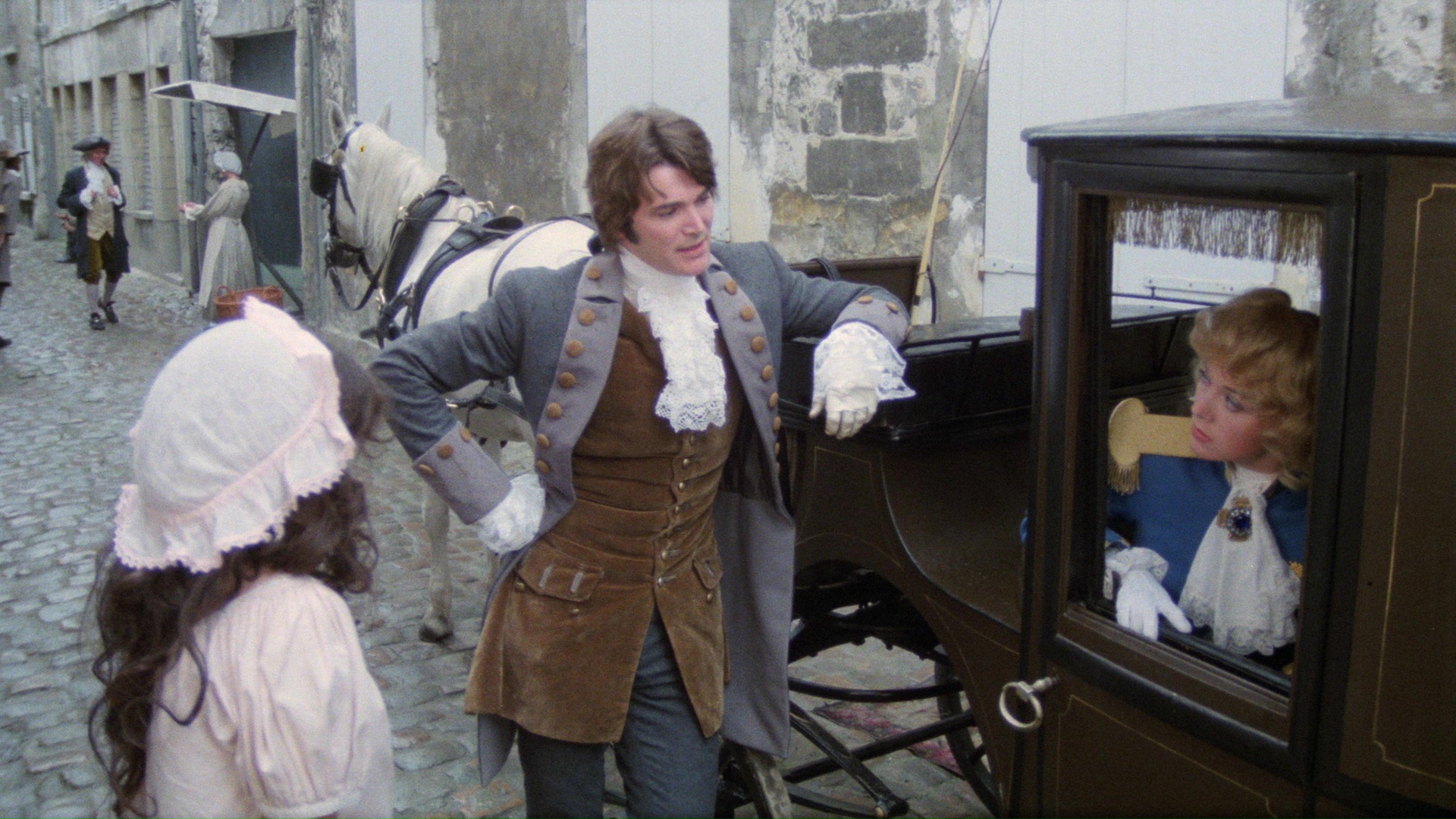 several years, celebrated French
several years, celebrated French 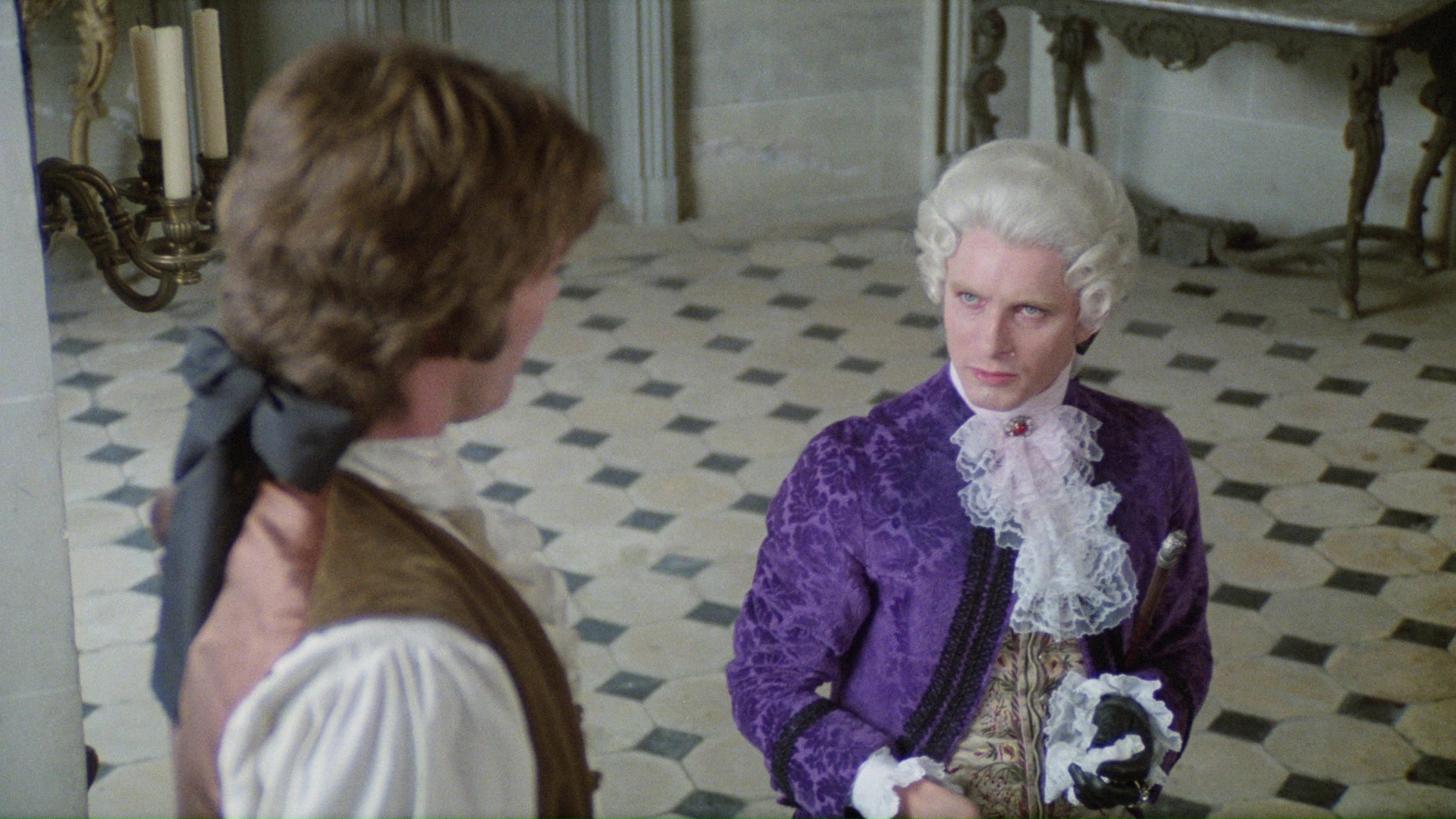 filmmaker Jacques Demy had to look beyond France to realize more projects, and six years later he finished one of his most mysterious and least-seen films, Lady Oscar. This adaptation of The Rose of Versailles, a popular manga by Riyoko Ikeda also turned into a mid-'70s anime series, was financed by Japan's Kitty Music, Nippon TV, Shiseido and Toho Companies and was only theatrically released in Japan for legal reasons which still remain muddy.
filmmaker Jacques Demy had to look beyond France to realize more projects, and six years later he finished one of his most mysterious and least-seen films, Lady Oscar. This adaptation of The Rose of Versailles, a popular manga by Riyoko Ikeda also turned into a mid-'70s anime series, was financed by Japan's Kitty Music, Nippon TV, Shiseido and Toho Companies and was only theatrically released in Japan for legal reasons which still remain muddy. 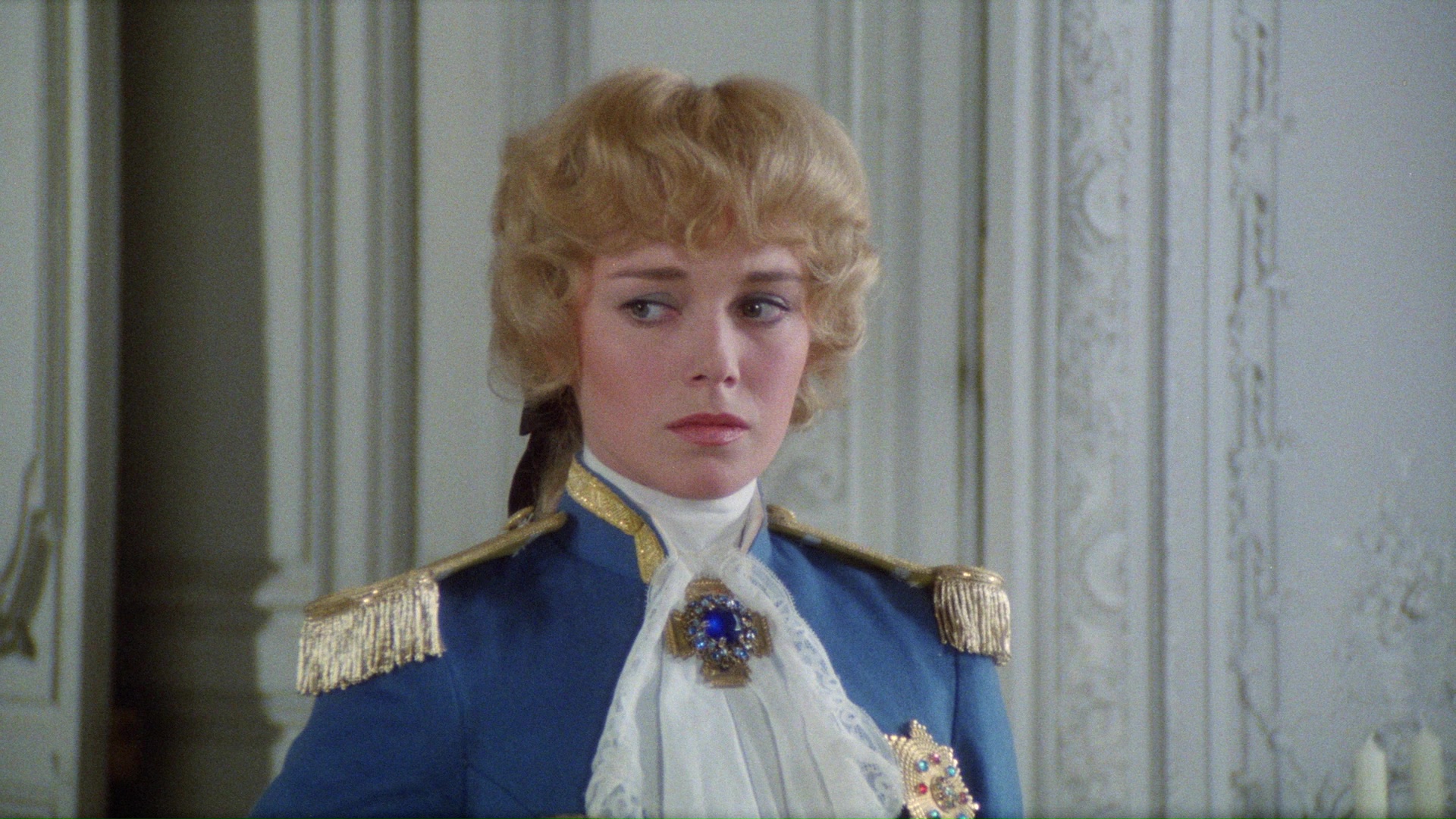 bland score), it's hard to spot his touch here. It's certainly sumptuous though and loaded with an abundance of eye-popping costumes and locations, while MacColl does a solid
bland score), it's hard to spot his touch here. It's certainly sumptuous though and loaded with an abundance of eye-popping costumes and locations, while MacColl does a solid 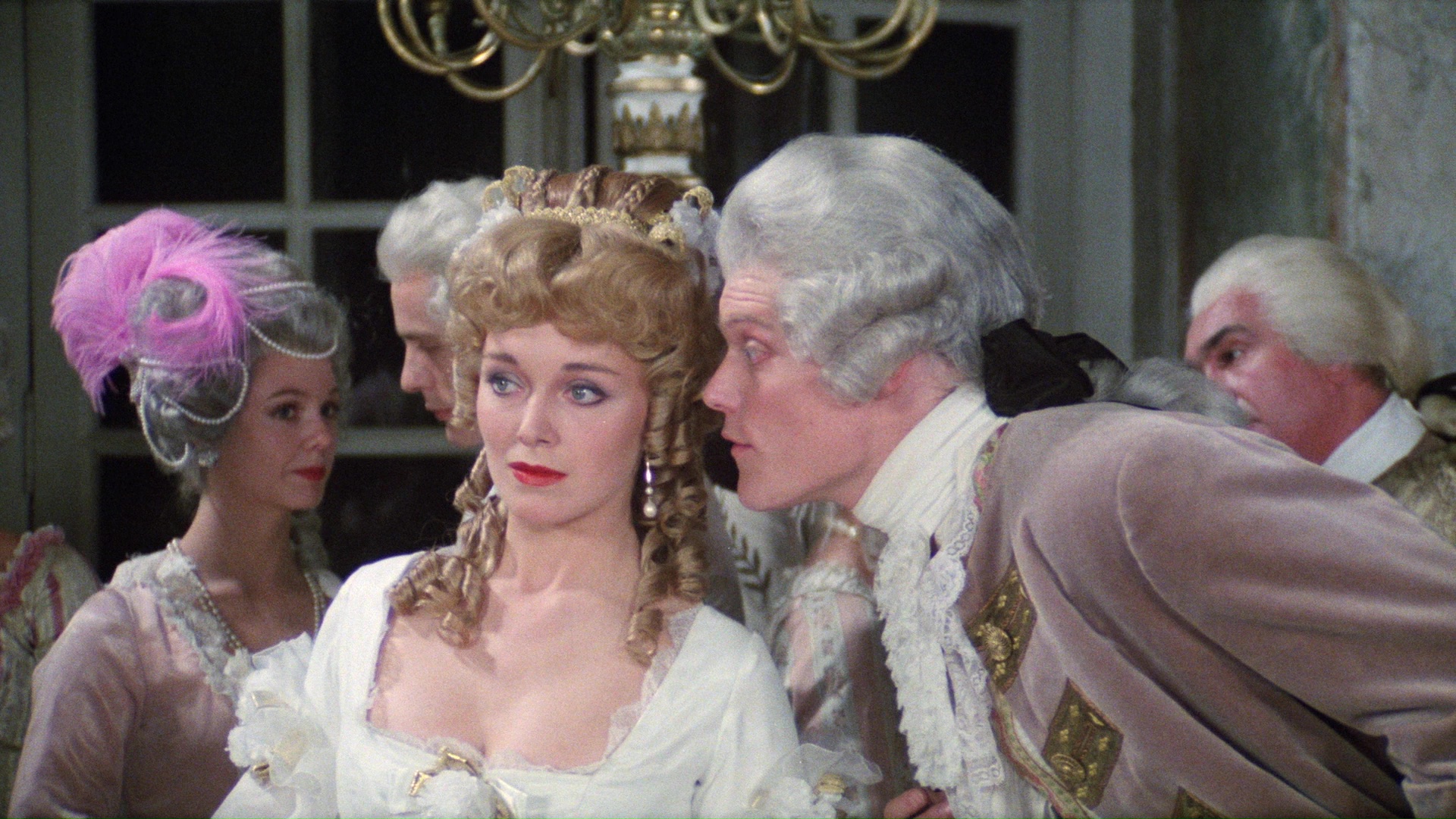 job in the lead despite some stilted editing and a clunkier handling of English than Demy's earlier The Pied Piper. (On top of that, everyone speaks with British accents except for Bloody Friday's ill-fated Christine Böhm, adopting a French accent to play Marie Antoinette.) It's plenty of fun spotting odd cast members like Martin Potter (Satan's Slave), Sue Lloyd (The Stud), former Hammer eye candy and high society fixture Anouska Hempel, a boyish and fleetingly glimpsed Lambert Wilson, and a very young Patsy Kensit as the juvenile Oscar. That said, the sexual confusion of Demy's previous film carries over interestingly here in quite a few scenes, and the surprisingly tragic finale represents a continuing trend on Demy's part towards downbeat (or at least heavily bittersweet) story resolutions. It's probably safe to say that without the gender tweaking here and greater emphasis on political conflict and tragedy, we wouldn't have had his later efforts Un chambre en ville and Parking.
job in the lead despite some stilted editing and a clunkier handling of English than Demy's earlier The Pied Piper. (On top of that, everyone speaks with British accents except for Bloody Friday's ill-fated Christine Böhm, adopting a French accent to play Marie Antoinette.) It's plenty of fun spotting odd cast members like Martin Potter (Satan's Slave), Sue Lloyd (The Stud), former Hammer eye candy and high society fixture Anouska Hempel, a boyish and fleetingly glimpsed Lambert Wilson, and a very young Patsy Kensit as the juvenile Oscar. That said, the sexual confusion of Demy's previous film carries over interestingly here in quite a few scenes, and the surprisingly tragic finale represents a continuing trend on Demy's part towards downbeat (or at least heavily bittersweet) story resolutions. It's probably safe to say that without the gender tweaking here and greater emphasis on political conflict and tragedy, we wouldn't have had his later efforts Un chambre en ville and Parking. 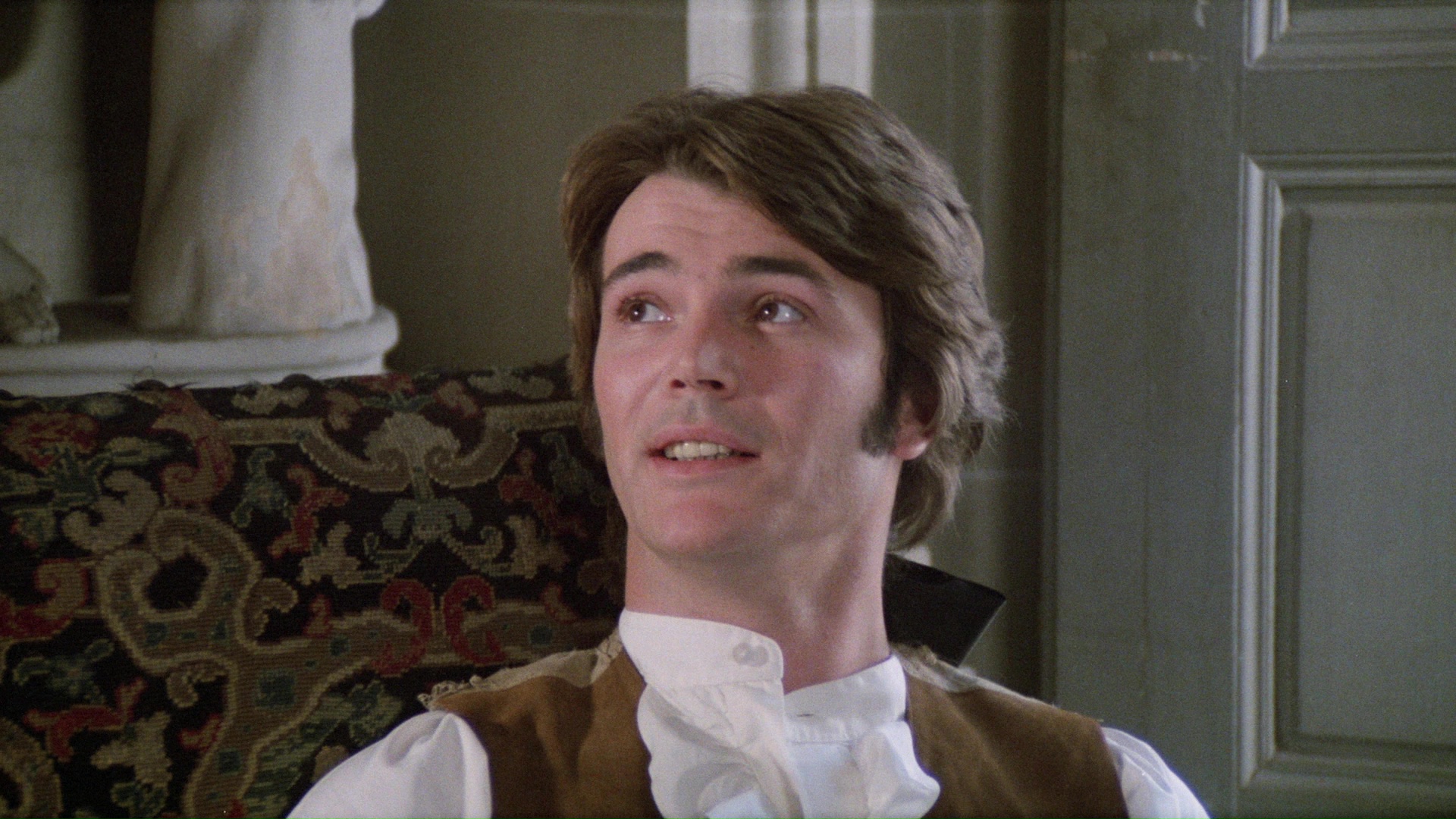 Demy box set features six and a half minutes of home movie footage from the Versailles shoot (with voiceover by Alain Coiffier), a poster gallery, a video commentary featurette by film
Demy box set features six and a half minutes of home movie footage from the Versailles shoot (with voiceover by Alain Coiffier), a poster gallery, a video commentary featurette by film 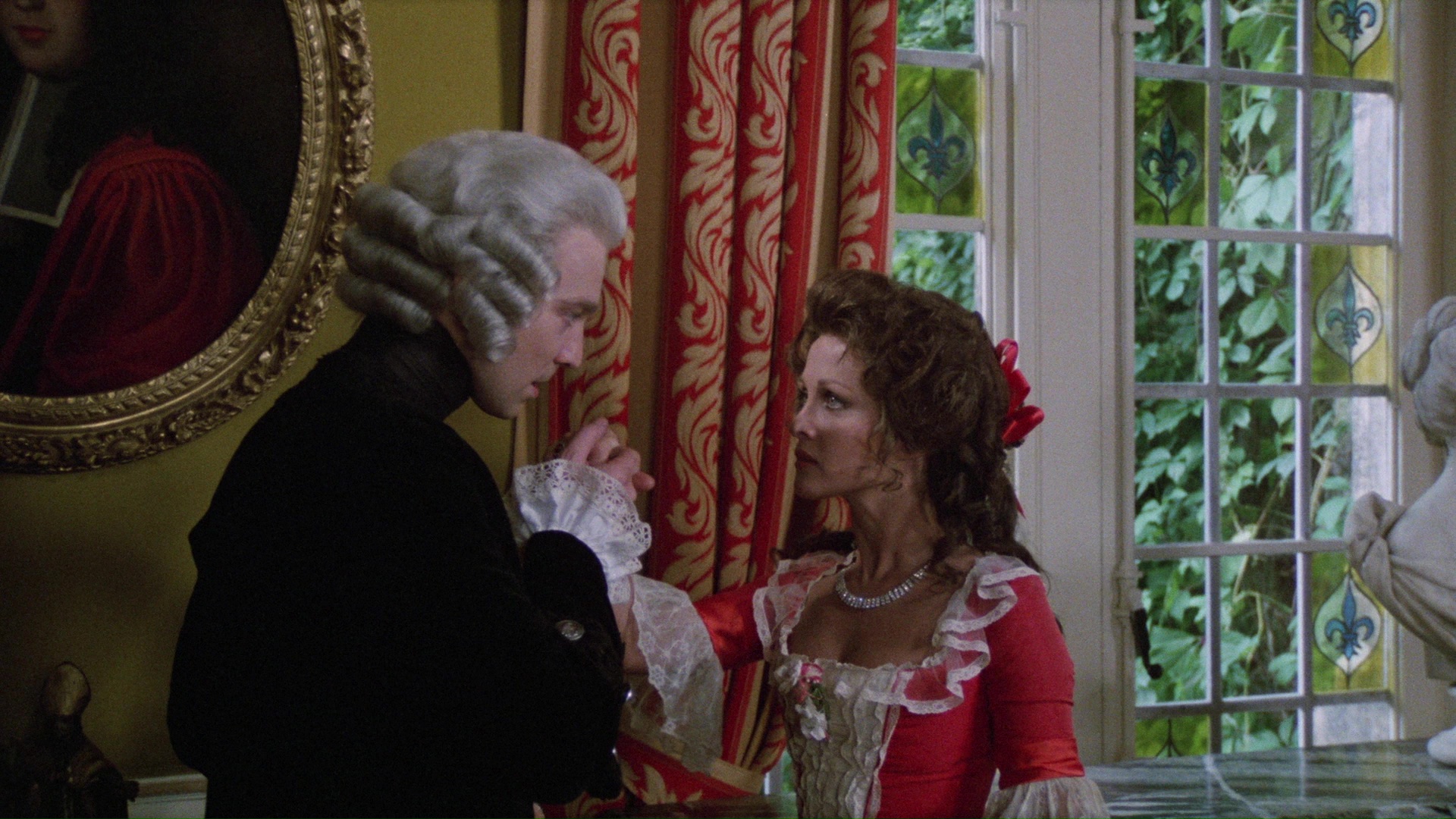 historian Evelyne Lever, and Mathieu Demy reading more about the film from Berthome's writings.
historian Evelyne Lever, and Mathieu Demy reading more about the film from Berthome's writings. 